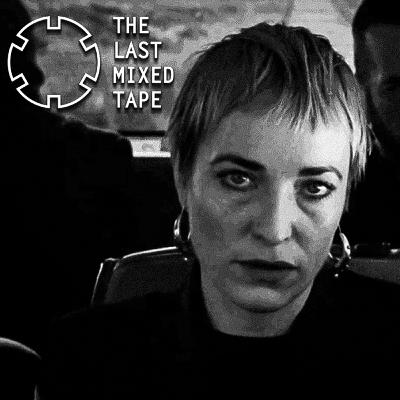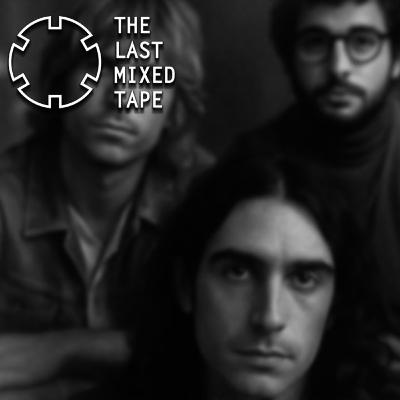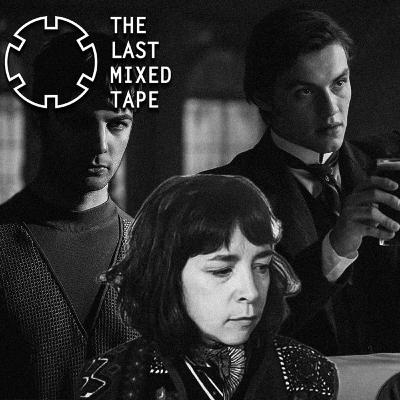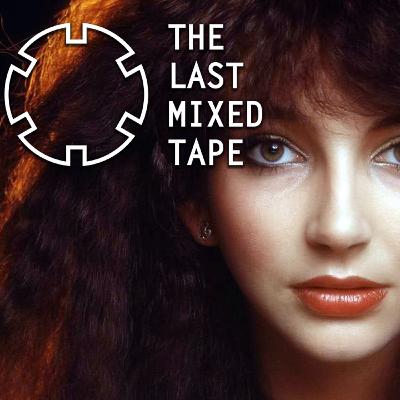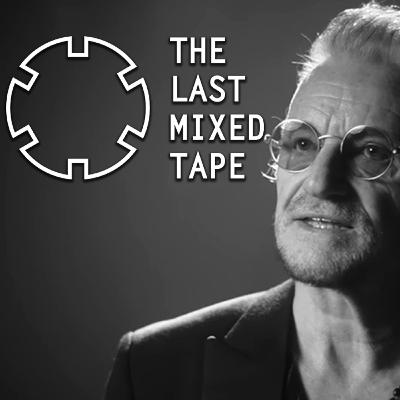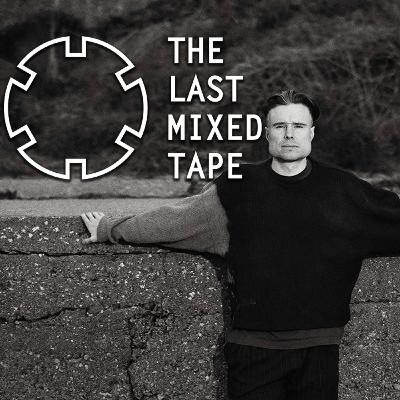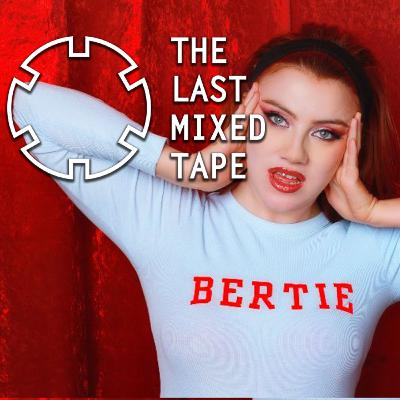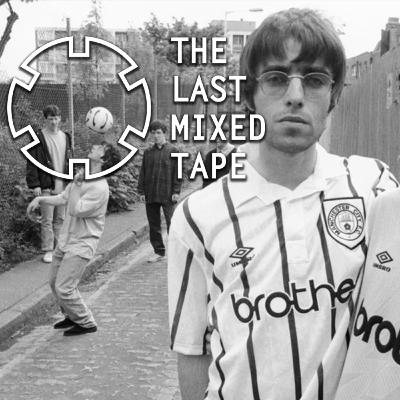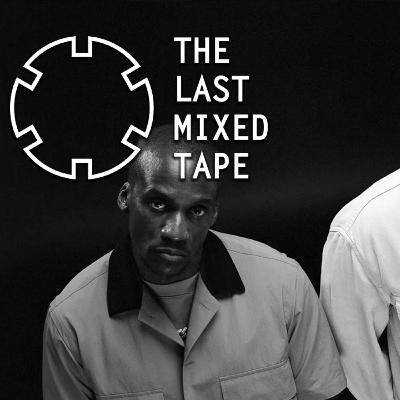Discover The Last Mixed Tape
The Last Mixed Tape

117 Episodes
Reverse
Charli XCX has entered her darkest era yet. With “House,” her new collaboration with The Velvet Underground legend John Cale for Emerald Fennell’s upcoming Wuthering Heights (2026), Charli steps into a world of gothic romance, decaying architecture, and emotional brutality, a complete reinvention from her Brat era.In this deep-dive, The Last Mixed Tape explores Charli’s career-defining pivot after Brat to the haunting production choices and Cale’s iconic narration, this episode unpacks why “House” is quickly becoming one of the most important songs of her career.
Four decades after The Specials captured Britain’s collapse, Irish folk collective Lankum have reimagined Ghost Town transforming it into a haunting reflection of modern Ireland.In this episode of The Last Mixed Tape, we trace Ghost Town’s journey from 1981’s Two-Tone rebellion to today’s Dublin exploring how music becomes a document of its time, from racial tension and working-class despair in Thatcher’s Britain to housing crises and far-right unrest in Ireland today.
In Berghain, Rosalía turns heartbreak into ritual. Set against the cultural backdrop of Berlin’s legendary club and her Catalan roots, this episode of The Last Mixed Tape examines how she translates loss into performance using sound, body, and movement to reclaim freedom.We look at how Berghain continues the evolution of Motomami, blending vulnerability with power, and how collaborators like Björk and Yves Tumor expand its emotional and symbolic depth. Through grief, Rosalía reinvents herself and in doing so, redefines what pop music can be.
Róisín Murphy was once celebrated as a queer icon, a voice that echoed through the very clubs and communities that made her career. But her recent comments, and past posts, about trans people have shaken that bond to its core.In this episode of The Last Mixed Tape, Stephen White explores how an artist so deeply embraced by queer culture could turn against it, what that says about allyship, and why this moment matters far beyond one tweet.
The announcement of Bad Bunny’s Super Bowl Halftime Show sparked a wave of backlash from ICE threats to pundits questioning whether he’s even “American.”But this isn’t just about one artist or one performance. It’s about who gets to define America’s culture and who’s allowed to stand on its biggest stage.In this episode of The Last Mixed Tape, we explore how Bad Bunny and Chappell Roan have become symbols in a new cultural resistance one where language, identity, and freedom of expression collide with a politics of fear.
AI music is about control. From record labels chasing profit to right-wing culture warriors pushing “neutral” art, this is the plan to replace real artists with machines.In this episode of The Last Mixed Tape, Stephen White explores how the rise of AI in music is being weaponised by both corporate and political forces. Why are record labels and conservative commentators so interested in a world without artists? And what does that mean for creativity, culture, and control?
Netflix’s new series House of Guinness has been slammed by Irish critics for its stereotypes and shallow storytelling. But there’s one part of the show that works the soundtrack. Featuring artists like Fontaines D.C., Kneecap, Lankum, Lisa O’Neill, and The Mary Wallopers, the music captures the rebellious poetry of Ireland far better than the drama itself.In this episode of The Last Mixed Tape, Stephen explores how the soundtrack dismantles the very caricatures the show indulges in, and why modern Irish music has become a cultural reclamation in its own right.
Mo Chara (real name Liam Óg Ó hAnnaid , a member of Belfast rap group Kneecap, has had terrorism charges against him thrown out at Woolwich Crown Court. The case, which alleged that Mo Chara displayed a Hezbollah flag during a London performance, collapsed when the judge ruled the prosecution was unlawful because the Attorney General’s consent had not been sought.This verdict means no conviction but it raises urgent questions about free speech, censorship, and the growing pressure on artists who speak out on political issues, particularly around Palestine and Gaza. This week we explore what the trial of Mo Chara means for the future.00:00 Intro00:30 Mo Chara 01:02 Kneecap Win, Why It Matters01:38 Kneecap Vs The UK Government 06:53 What We’ve Lost15:09 Gaza, Palestine17:34 What Do You Think?18:05 Liam Óg
Fascists can’t create. They can only silence, steal, and twist music into something hollow.From Nazi Germany banning jazz, to the Catholic Church blacklisting artists in Ireland, to punk, disco, and hip-hop being targeted, authoritarian regimes have always feared music. Because music is messy, imperfect, alive… everything fascism can’t stand.In this video, I explore how fascists try to erase or hijack culture, from Pink Floyd’s The Wall to Ireland’s recent “Míse Éire Festival.” And why, no matter how many times they raid the dancefloor or burn the records, music always slips free.If you enjoyed this, don’t forget to like, subscribe, and join me every week on The Last Mixed Tape for more deep dives into music, culture, and resistance.00:00 Intro00:28 Frank Zappa 01:13 Fascists Can’t Dance01;42 A Brief History of Authoritarianist Oppression05:52 Because of Woke!06:03 Why Fascists Hate Music13:25 Why this matters16:21 Zappa
Emerald Fennell’s new Wuthering Heights film has already stirred controversy, but I want to make the case that the best adaptation of Emily Brontë’s gothic masterpiece already exists and it isn’t on screen. In 1978, an 18-year-old Kate Bush captured the wild, haunting atmosphere of the novel in just four minutes of music, creating a version of Wuthering Heights that has outlived almost every film and TV attempt.In this episode of The Last Mixed Tape, I explore why Kate Bush’s Wuthering Heights is the definitive adaptation: from its ghostly perspective and groundbreaking composition to its cultural afterlife in flash mobs, memes, and even later adaptations. I also share my personal story of hearing the song for the first time as a child and how it revealed music as something magical and otherworldly.00:00 Intro00:30 Kate Bush01:01 Why Kate Bush’s Wuthering Heights?01:53 Brief History of Emily Brontë’s Wuthering Heights02:38 Emerald Fennell, Olivier, & Ian McShane04:16 Kate finds Cathy05:45 The Definitive Adaptation of Wuthering Heights 17:14 Kate’s Cultural Impact18:59 What do you think?19:45 Heathcliff…
Kneecap’s brand new single “Sayōnara” is a cultural moment. In this video, Stephen White of The Last Mixed Tape breaks down why Kneecap are in their imperial phase, how their defiance on global stages like Glastonbury has made them cultural icons, and what Sayōnara tells us about Irish music and identity in 2025.From their stance on Gaza to the “Free Mo Chara” campaign, Kneecap’s mix of politics, satire, and rave-driven hip-hop has made them one of the most important acts in Ireland today. Featuring Jamie Lee O’Donnell in the official music video, Sayōnara is both a festival anthem and a statement of resistance. But what does it mean for Irish culture now and what does it say to the wider world?00:00 Intro00:28 Kneecap01:31 Why Sayōnara?01:59 The Imperial Phase02:45 The Rise of Kneecap04:36 Free Mo Chara05:40 Kneecap Sayōnara Review and Reaction12:26 The Future 14:41 What do you think?15:18 The Irish Language
CMAT’s Euro-Country is a generational reckoning. In this review, I explore why only CMAT could have made this record, and why it could only have been made now.From the scars of the Celtic Tiger to the contradictions of modern Europe, Euro-Country is witty, heartbreaking, and politically sharp, a pop record that laughs, cries, and critiques all at once. In this episode of The Last Mixed Tape, I dive deep into the album’s themes, CMAT’s artistic evolution, and why she’s the right artist at the right time.00:00 Intro00:28 CMAT 00:56 Why Euro-Country?01:25 CMAT: The Right Artist at the Right Time04:12 Euro-Country Album Review15:50 Where Does This Leave Us…?17:27 What About You?18:02 Euro-Country
Florence + The Machine is back with Everybody Scream the first single from their upcoming album, Everybody Scream, set for release this Halloween. In this video, I dive into the song’s gothic sound, its themes of witchcraft and ritual, and how Florence continues to reclaim mystical imagery in her music.From Stevie Nicks to Kate Bush, from Irish folklore the witch has always been a powerful figure in music a symbol of independence, transformation, and rebellion. Florence now carries that tradition forward, turning performance into ritual and music into magic.00:00 Intro 00:30 Florence Welch 01:11 Why Everybody Scream?01:49 Witchcraft & Ritual in Music04:24 Florence + the Machine Return06:00 Everybody Scream Reaction10:03 Everybody Scream Video Discussion 12:57 Florence in the Future13:58 What do you think?14:38 Useless Magic
In 1993, U2 used their stage to beam Sarajevo into the world during the Bosnian War. They gave space for civilians to speak under siege during their acclaimed ZooTV Tour. From that came ‘Miss Sarajevo’ with Luciano Pavarotti and one of the most powerful artistic responses to war. But in August 2025, when U2 spoke out on Gaza, their words told a different story, one that felt cautious, muted, and unwilling to hold power to account. This video explores U2’s legacy of protest, from Sarajevo to Gaza, and asks: where is the courage now? Along the way, we’ll contrast Bono and U2’s late response with the younger generation of artists; Fontaines D.C., Kneecap, Bob Vylan, CMAT, The Murder Capital, who are reshaping what it means to use music as resistance today. 00:00 Intro00:36 Voices from Sarajevo02:39 Why U2, Sarajevo & Gaza?03:29 The Siege of Sarajevo & U209:24 U2’s Statement on Gaza 202512:06 My U2 Gaza Statement Reaction18:52 Past & Present Caparisons 20:55 What do you think?22:10 Voices from Palestine
If grief was the language of For Those I Love’s debut, Carving the Stone is its translation into the language of a nation. David Balfe returns after four years with an album that moves from the deeply personal into the generational, tackling grief, class, violence, toxic masculinity, and the systems that keep us trapped.In this episode of The Last Mixed Tape, we explore how Carving the Stone speaks to a modern Ireland under late-stage capitalism, and why it’s a vital counterpoint to the rise of misogyny and far-right radicalisation.00:00 Intro00:30 For Those I Love01:20 This Week’s Show01:53 For Those I Love - Album Retrospective04:15 Fighting Toxic Masculinity07:23 A Return08:24 Carving The Stone Reaction15:04 In Review16:31 Conclusions 19:03 David Balfe
Five years ago, Gemma Dunleavy released Up De Flats, an EP that did more than just tell her story. It told a place’s story. Sheriff Street. Dublin’s North Inner City. Communities flattened in headlines but still rising in rhythm.In this episode of The Last Mixed Tape, Stephen White reflects on the legacy of Up De Flats, what it meant then, and what it means now—against a backdrop of ongoing redevelopment, class erasure, and cultural resistance.00:00 Intro00:30 Gemma Dunleavy 00:52 This Week’s Show01:47 Sheriff Street 04:20 Up De Flats Retrospective 07:10 Gentrification 08:14 Reflections15:30 5 Years On16:32 What Do You Think?17:19 Gemma
CMAT’s new single Euro-Country is a cultural reckoning. In this episode of The Last Mixed Tape, Stephen White breaks down how CMAT takes aim at the ghosts of the Celtic Tiger, the fallout of the 2008 crash, and the legacy of Bertie Ahern. From the fluorescent ruins of Santry’s OMNI Shopping Centre to Ireland’s Celtic Tiger past, this video explores why Euro-Country has struck such a deep chord across generations in Ireland.With themes of intergenerational anger, grief, memory, and economic betrayal, CMAT’s bold songwriting is already being described as one of the most powerful political statements in modern Irish pop.00:00 Intro00:33 CMAT00:51 Why Euro-Country?01:24 Ireland & The 2008 Crash03:50 CMAT is the perfect artist for this…05:45 Euro-Country Music Video Analysis 07:30 CMAT Euro-Country Reaction13:45 Reflections15:29 What do you think?16:07 Shame
The Oasis reunion is no longer a rumour, it’s happening. With shows already underway in Manchester, Cardiff and soon Dublin’s Croke Park, fans are once again screaming Champagne Supernova like no time has passed.In this episode of The Last Mixed Tape, I revisit the song that captured Oasis on the edge of everything, before Be Here Now, before the implosion, before break-up and the 2025 reunion.I first heard it on a crackling 2FM broadcast in Waterford in 1996. Now, watching clips from the reunion flood social media, I feel the same way I did back then like the world cracked open for just a few minutes. This video explores why Champagne Supernova might be the most Oasis song Oasis ever made, all drift, ego, grandeur and aching beauty.00:00 Intro00:30 Noel Gallagher 01:39 Champagne Supernova IS Oasis?02:28 Memories of Oasis live in 199604:39 What Oasis meant then08:07 Oasis at their most Oasis09:44 Why is matters now16:25 Champagne Reunion17:40 What’s your favourite Oasis song? 18:58 Noel
“Let God Sort Em Out” isn’t just a comeback it’s a calculated strike. Clipse have returned with one of the most competitive, ruthless rap records in years, and they brought Pharrell and Kendrick Lamar into the ring with them.In this episode of The Last Mixed Tape, we dive into the philosophy behind the album, how Pusha T and Malice weaponise precision, and why this record proves that hip-hop is still a full contact sport.🎙 Featuring a deep dive on Chains & Whips, Pusha’s legendary beef track record, and how Clipse’s return rejects nostalgia in favour of confrontation.00:00 Intro00:30 Pusha T01:46 Clipse Let God Sort Em Out 03:10 First Impressions 06:58 Chains & Whips 08:10 Music As A Full Contact Sport17:34 Clipse Are Ruthless18:24 What do you think?19:05 Pusha
Glastonbury 2025 became one of the most politically charged festivals in recent memory from Bob Vylan’s explosive set being investigated by police, to Kneecap’s BBC censorship, and Rod Stewart backing Nigel Farage in the press.In this episode of The Last Mixed Tape, we explore the growing tension between protest art and platform control, and ask:Who gets to speak freely on the biggest stages and who gets silenced?With Palestinian flags in the air, a woman live-streaming censored sets in real time, and police watching musicians instead of listening to them, we’re witnessing a major shift in how protest music is treated.00:00 Intro00:30 Nina Simone 01:33 Why Glastonbury 2025?02:03 Bob Vylan 04:12 Matty Healy 05:26 Freedom of Expression10:45 The Politics of Glastonbury 202512:15 Why?19:43 We Choose The Art We Consume 21:07 Dangerous Days22:37 Chuck D



